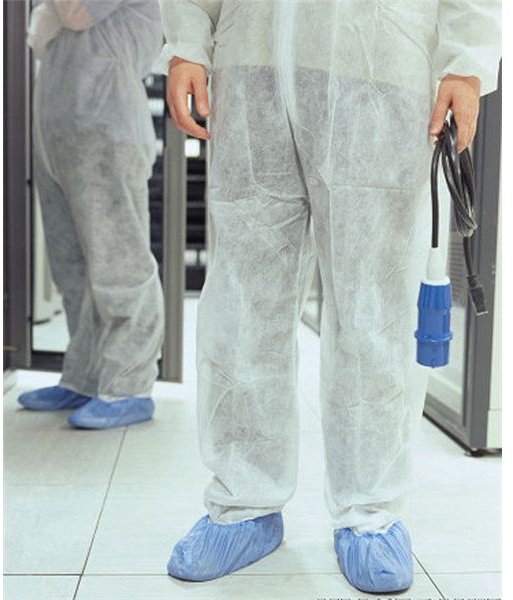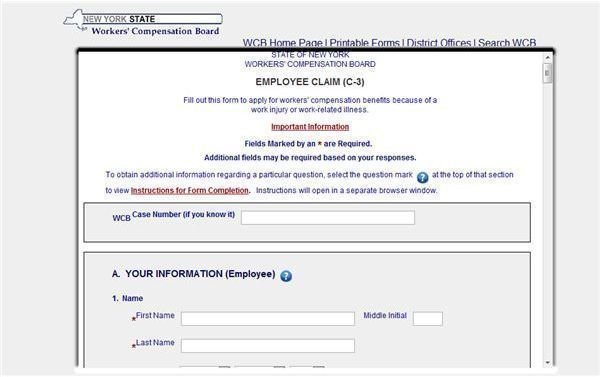How Does Workers’ Compensation Work? What Do You Need to Do to File a Workers’ Compensation Claim?
What is Workman’s Compensation?
Workers’ Compensation is a type of insurance and a disability benefit paid to workers injured on the job or ill from a job-related
problem. While it pays for medical costs and can pay a percentage of your salary weekly while you are unable to work, it has certain rules that must be complied with. As well as rules about how to claim workers’ compensation, accepting workers’ compensation usually means you cannot sue your employer for negligence or get money for the pain and suffering, which might be awarded in a civil case.
It is a form of insurance for employers and employees, with oversight from the state.
Not all countries have workers’ compensation laws, although most First World countries do. An exception is the UK, which does not provide specifically for workers’ compensation, but does require some degree of employer insurance to cover injury to workers. Australia was one of the earliest to implement workers’ comp coverage.
Image: Flickr by NIOSH
Flaws in the System
There are flaws in the system but, overall, workers receive much more protection in the case of an on-the-job injury than before the workers’ compensation laws were enacted. One of the flaws, in New York State at least, is that you are paid while on disability as a percentage of your salary, and if your salary increases–even through such a way as an increase in the federal minimum wage–the workers’ compensation insurer does not have to increase payments as well. Someone who was injured in such a way that he was totally unable to work in 1990 will still receive the appropriate percentage of his pay, based on what that pay was in 1990. This means that he may not be receiving anywhere the amount of money needed to live on, although he is still unable to work. This determination of benefits based on when the injury occurred may also be effective in other locales.
How does Workman’s Compensation work?
All medical costs are covered. Workman’s compensation provides an injured or ill worker with a portion of his normal pay while he is unable to work. There is also a one-time payment made for some injuries, with a scale of payments set by each state.
There is a schedule of recompense for certain injuries–less for a finger than for a hand, and so on. The states enact the amount of compensation required for each injury. One flaw in the system is that if an injury is not on the schedule, it is often difficult to get an amount allotted to compensate the employee, even for an obviously damaging injury. In particular, this can be a problem for some types of back injuries.
In the US, each state handles its own workers’ compensation policies, and they differ between states.
Different Rules for Meeting Workers’ Comp Regulations
Companies as well as states also can have different rules about how workers’ compensation is handled within their company–which means it is an excellent idea to read your company handbook before you are injured.
How Does Workman’s Compensation Work? Filing Your Claim
You were injured at work–what now? To file a workers’ compensation claim, there are forms to fill out and requirements to meet.
Report What Happened

Injuries are unexpected. When you have been hurt or are ill resulting from work, following workers’ compensation requirements may not pop into your mind immediately. However, to receive workers’ compensation, you need to fulfill the requirements, so familiarizing yourself with basic requirements is always a good idea. Knowing how to start your claim is essential.
Report the injury or illness as soon as possible. If you slip on the steps at work and knock yourself out, you may not wake up until you are in the ER. In that case, contact your direct supervisor as soon as you can. They probably have an informal report, since while you were unconscious, someone did something to get you some care, but you do need to give a formal notification, both at your job, and to the state.
If notification is delayed beyond 30 days, it may jeopardize your ability to make a workers’ comp claim.
Image: Flickr by NIOSH
Steps to be Taken for Every Case
Make sure any emergency care is done. Then take care of notifications. Find out the form to file a workers’ comp case with your state, and send it in as soon as possible. You must notify your direct supervisor or manager, and it would be good to tell your human resources department, as soon as possible after the injury. A doctor will need to sign off that you are injured and indicate whether your injury keeps you from performing your regular job.
Sometimes you cannot do the work you were previously able to do, but there is a job in the company that you can do. You are usually required to do that work until you are able to return to your former duties. If the doctor agrees that you are unable to work in your condition, then you cannot return to work until a doctor agrees you are fit. The doctor may decide you can return to work at first on a partial basis.
You cannot be fired for not working with a workers’ comp injury as long as a physician has determined you are physically unable to work. If he says you can return to work, even on a partial basis, you must work the appropriate portion of time the doctor allows, at whatever job the company finds for you. If you do not return to work after a physician has said you are able to work, the company does not then have to continue to employ you.
Get the Essential Forms - Check the State Site Yourself
Find out the forms you need to file your claim so the state knows there is a workers’ compensation case. You can find out your state

regulations for workers’ comp cases at the website for your state government. You may have to call a government office to find out regulations for that locale, if the website is not clear. However, most states now have the form you need to send them to initiate a workers’ comp claim on their website. Your HR department may also be able to give you a copy of the form, but you should not count on it. In either case, fill it out and submit it to everyone who needs a copy as quickly as you can. Until the state is notified, there is not actually a workers’ comp case.
screenshot from NY State WC site
The Claims Process
Workers’ compensation insurance is handled in different ways in different American states and in every other country where there are such rules. Generally, the state provides ‘judges’ to handle workers’ compensation claims. If a hearing is set for your case, not appearing for that hearing may be taken as evidence you do not have a true workers’ compensation claim. If you are unable to go to a hearing, you should notify the workers’ compensation board administrating your case as soon as you know.
Not every case does go through specific hearings in front of a judge, but if there are difficulties or you feel there is something inappropriate going on in your case, you can request a hearing. Not every injured worker needs to have a lawyer, either, but if there is anything about your case that is not straightforward or may be questionable, you should consult a lawyer who specializes in employee workers’ compensation. The judge in the case will set the fee for the lawyer, and it will be taken out of the settlement - it is never anything you will need to pay to a lawyer directly. The percentage or amount a judge will determine to be paid to the lawyer may be different in every case.
Comply with All the Rules in a Timely Fashion

Also, once the original emergency is over, or immediately if the injury does not need emergency care, you must find out which medical providers are on the company-approved list for treating workers’ comp injuries, and select your medical care from one of the approved group. This is not the same thing as having an injury assessed by an independent physician, if requested by your employer or their insurer.
Find out how often you need to see the doctor and any other requirement the insurance company may have. You will probably be assigned a case worker – who is supposed to see that your injury is cared for properly – and who has a mission to get you back to work, at least on a part time basis, as quickly as possible. His goal is to minimize the amount of money that needs to be paid on claims. You should document conversations with him, in case there is a disagreement and you need to have a hearing before a judge. He may also request that you be seen by a doctor of his choice to confirm the injury and its extent. You must comply with such a request to maintain a valid claim.
Image: on Flickr by playerx
Keep Records
Make sure you are on top of any communications about your claim. If you are told something by an employer or workers’ compensation insurance person, and it is unusual or contrary to your understanding, take notes, record whom you spoke with and what they said, and request confirmation of it in writing right away as well.
Workers’ Compensation Issues
Workers’ compensation can be a very volatile subject: Sometimes employers feel that injuries are faked or not as serious as they are made to appear, while employees may feel the employer has no understanding of the pain and disability they are going through.
Different states allow different numbers of days to pass before payment for missed work is made. In New York State, you must miss more than a week of work before any payments will be made to reimburse you for the time missed. They are not paid until 14 days after the claim was started. In California, if a doctor confirms it, after three days of missed work a worker will start being reimbursed for missed time. This decision is in the hands of the individual states, so you will need to check your own state’s policy to find out how you are affected.
This means that an employee who will miss work for more than a few days may want to be out that essential number of days, so he does not lose most of a week of pay. This can add to employer / employee tension if the injury is not seen as particularly severe by the employer or as something that would keep you from returning to work on at least a partial base almost immediately.
At a Minimum,
- Read your company handbook–when you first start work, before there is any potential issue of any sort. Workers’ comp may not be the only time you need to know what is in the handbook.
- Get emergency treatment if you need it.
- Get and fill out the forms required by your state to create a workers’ comp case.
- Notify your supervisor and HR department that you are injured.
- See a doctor to confirm your injury, and to certify what, if any, work you are able to do.
- Comply with all state, employer, and insurer requirements for a workers’ comp case, so it cannot be dismissed because you omitted to do something essential.
- If there are any hearings or meetings you are supposed to attend but cannot attend, notify those involved as soon as possible to make sure no one gets the impression you are abandoning your claim.
- If there is anything unusual or circumstances that need explanation, talk to a lawyer before judgments have been made
It is essential you are aware of what is happening with your case, because if you do not comply with the regulations, it may be very difficult to straighten things out to get you your legal benefits.
How does Workman’s Compensation work? It works well - if you find out and follow the rules.
